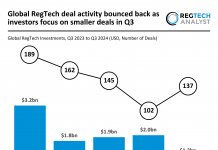Internet of Things security technology developer Intrinsic ID has received a €11m loan from the European Investment Bank (EIB).
This facility was deployed to aid the RegTech with the expansion of its R&D, engineering, product development and resources. The loan was supported under the European Fund for Strategic Investments (EFSI), the major Investment Plan for Europe, also known as the “Juncker Plan”.
With these funds, Intrinsic will expand development on its technology for creating unique and unclonable identities for connected devices. The Intrinsic products are based on its SRAM PUF (physical unclonable function) technology which enables the creation of a digital fingerprint that acts as a unique identity for microprocessors and other semiconductor devices within IoT devices.
The digital authentication software can be deployed to validate payment systems, secure connectivity, authenticate sensors and protect sensitive systems. The company protects over 125 million IoT devices for companies in a range of industries.
EIB vice-president Alexander Stubb said. “IoT is predicted to reach 50 billion devices by next year; and with continued growth, the incentives for security breaches will grow commensurately.
“Intrinsic ID addresses the need to secure products connected to the IoT and protect the data they exchange. This will enable semiconductor companies and makers of IoT products to be assured that their products have robust and cost-effective security. In an ever more digital world, the EIB should definitely be seen to support this.”
With IoT become more widely used, the space is beginning to see more startups explore protecting its operations. Last year, cybersecurity service for IoT devices EXEIN closed a €2m Series A round to support its growth in the sector.
Copyright © 2018 RegTech Analyst






